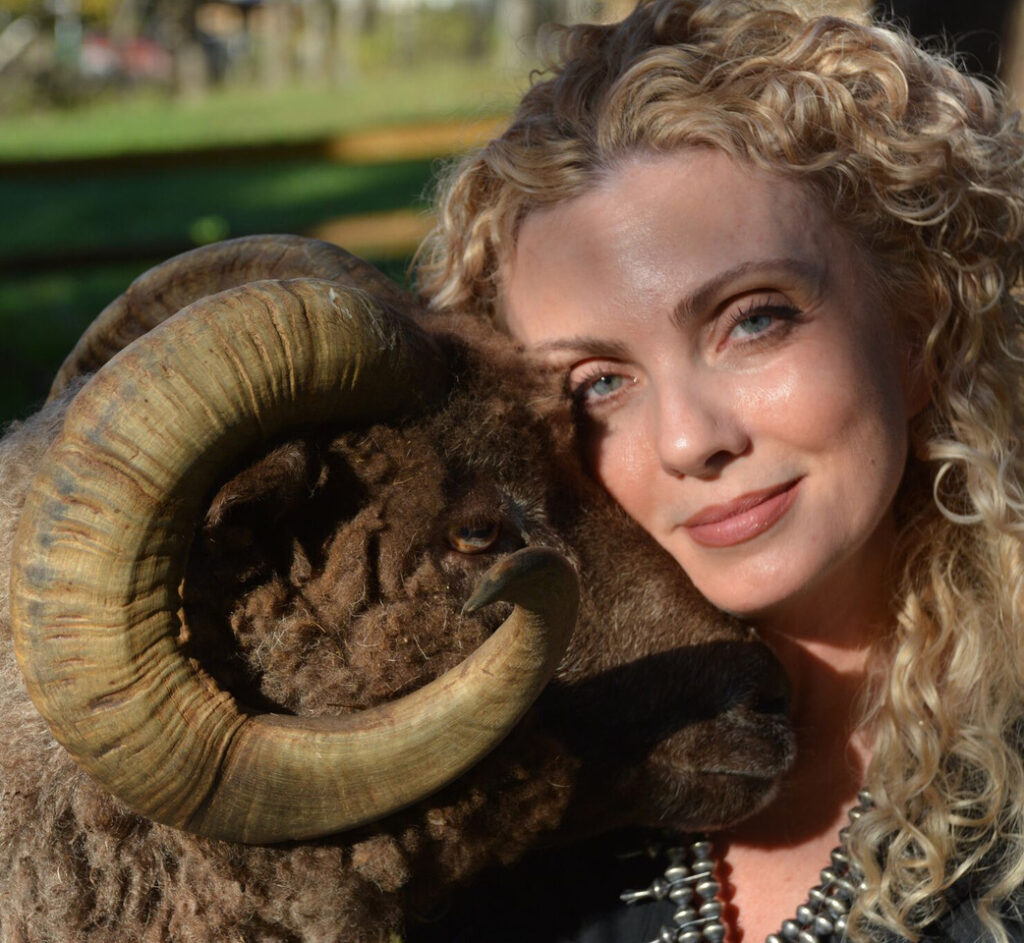Jean Pedrick Chapbook Prize Honorable Mention, selected by José Edmundo Ocampo Reyes
Excerpts from The Donkey Elegies
I am no cowgirl, no farrier, no vet, but still I learn the routine: how to gentle the halter around your face, how to sweetsong you back to the barn, insistent as you rightly are that we stop to pay homage to the wet green of new grass.
With a brush I shoofly your twitching withers, scrub the mud from your hindquarters to mink your coat up again, then bend on knee as if to propose, lifting your fetlock to face the bottom of your foot to me.
There I scour the tender dark with a metal pick, try to ease the place where your sole argues with the bone that nestles it, dislodging sand and shit and tiny stones—careful, so careful, intimidated as I am by your possible swift kick or the many ailments that could sour your gait if I get this wrong: seedy toe and white line disease, abscess, laminitis, thrush brought on from too much North Carolina rain.
I memorize the names as I touch them, whispering,
heel, hoof wall, sole, toe, frog—breathe the cave-cricketing dank that hides there, that baked-bread fecundity, a scent not unlike the sweet decay of a barn, a rank comfort under that stoic surefootedness for which you’re known, the who-would-have-known vulnerability secreted under the steps of every donkey
…
Who can say if Adam understood the consequences of his task, but each word we give to name an animal is a sentence, a decision made by the court tribunal that is us:
the difference between dog and cur, cow and stock, between deer and game, possum and vermin, mouse and feeder is
the difference between a wheel to run on versus a glue trap, a copper cowbell or a stockyard-style knocker of electricity meant to stun before the blood is drained.
Now, call a donkey a jackass and you make the animal into a classic punch-
line of the kingdom, a defense against recognizing who made us, against giving thanks to a being we once couldn’t live without, the same as I once felt I was too good for my illiterate, hammer-swinging grandfather who taught me how to pray. How I teased all his backwards mispronunciations, a shame that burns within me to this day.
Worse, call a donkey feral, and you’ve cinched a Judas collar around the neck of a jenny, duped her with a tracking device that leads a helicopter of marksmen who take out one wild herd then the next and the next as she keeps searching out a family before she’s the last
to be shot.
Before, in war, she and her kind were necessary, allies capable of going where none other could, scrambling up uneven ground, surviving on the hot nothing of dry scrub and air, named
Sargent Biscuits, Major Hazel, Pete the Trigger, Jane the Brave.
But after the treaties are signed, they’re an invasive diaspora, a destroyer of cultivated fields, an unowned pest, good for the bone meal in dog food. And always, the bounty is paid on the ears of each dead donkey.
…
The truth of my family was buried in their talk:
the church ladies would say they hadn’t seen me in a donkey’s years even if I had missed only a few Sundays, and all us kids knew to avoid Uncle Leon because the man could talk the hind legs off a donkey and that telling grandfather what to do was about as good as putting a steering wheel on a mule.
By then, not one of us kept animals any more. No, we were ready to let the city and its money make us clean and new, opened our homes to nothing more than a teacup poodle with toenails painted pink. But still, our etymologies remembered
what we’d rather forget, because if we had something to carry anything before, it was surely nothing more than good-for-nothing donkey, because rarely did our beasts of burden include a horse unless—you know how the saying goes—we were hungry enough to eat one.
But here
in this field sweetened with the low mumbling of grouse and a wind that flips maple leaves silver, this donkey is perfectly still as if he’s always been here and never left, as if he’s always been this way and always will. And who would dream of letting him go? When I dirty my nails scratching his stout neck, it’s like touching the source of all those country sayings that formed my tongue as a child, as if each syllable were a hayseed that could grow into a real something of use, as if each word was once an animal we’d left behind,
exhausted and in shame as we were. And now, in my fourth decade, only now can I reclaim what I didn’t even know was missing and there find myself.

Nickole Brown is the author of Sister and Fanny Says. She lives in the Asheville, NC, where she volunteers at three different animal sanctuaries. A chapbook of poems about these animals,To Those Who Were Our First Gods, won the 2018 Rattle Prize, and her essay-in-poems, The Donkey Elegies, was published by Sibling Rivalry Press in 2020.
